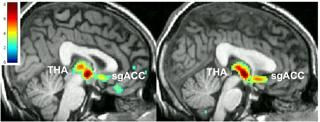Medical Shocker: Doctors Often Prescribe Placebos

The medical use of placebos, or inert substances or treatments designed to have no therapeutic value, in clinical trials is vital to the development of new drugs and treatments.
However, the misuse of placebos opens complex bioethical issues not easily resolvable, such as denying patients what might be the best available, albeit unproven, treatment. Prescribing a placebo to a patient not involved in a clinical trial also seems to violate the Hippocratic Oath.
Placebos can affect how patients perceive their conditions. It provokes the body's chemical processes for relieving pain and a few other symptoms, a result called the placebo effect. There are inert and active placebos. Common inert placebos include inert tablets like sugar pills and inert injections like saline. On the other hand, active placebos are treatments that might affect the body but don't do anything specifically for their patient’s medical condition. It's like prescribing an antibiotic for a cold virus.
It seems many doctors have used a placebo at one time or another in their practice. A published new survey conducted in Australia found 39 percent of doctors admitting they had prescribed an inert placebo at least once in their careers. About 75 percent also reported they had given out an active placebo once in their careers. Of this percentage, 40 percent said they did so routinely, at least once a month.
Of the active placebos, the most popular are antibiotics (42 percent), vitamin and mineral supplements (17 percent) and therapies considered alternative medicine like homeopathy (10 percent).
The survey published in The Australian Journal of General Practice involved more than 130 primary care physicians (also called general practitioners). It asked doctors if they had ever prescribed an inert placebo or an active placebo.
“We already know that doctors and GPs use placebos regularly overseas,” Ben Colagiur, study author and an associate professor of psychology at the University of Sydney, said.
The study said there’s a perfectly reasonable place for placebos in medicine. It pointed out health complaints like colds and stomach aches are self-limiting diseases that won't be cured any faster by whatever treatment a person uses.
Placebos can, however, make us feel better during periods of suffering. That’s why scientists have to test any new treatment against a comparable placebo to ensure it’s having an added effect not caused by chance.
The Australian study broadly came to the same conclusion as a 2008 study of internists and rheumatologists in the U.S. The American study found close to half of these physicians regularly prescribed placebos.
A 2012 study of German doctors found 88 percent had used placebos with their patients at least once. German doctors most often used active placebos. A 2013 study in the United Kingdom found 97 percent of doctors had prescribed active placebos at least once in their careers.
Overall, rates of placebo prescribing range from 17 to 80 percent of doctors depending on where and the type of placebo they were asked about.



























